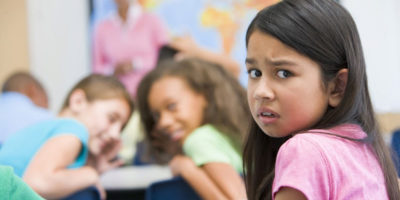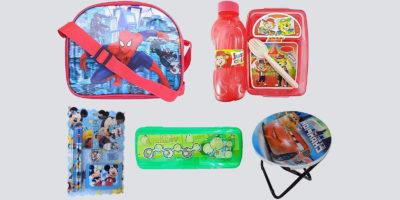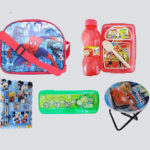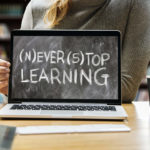A child does not know how to make good and correct choices in life. Situations where the child has to make a right and healthy choice occurs every where, whether at school, home or in the surroundings. Life skills include critical thinking, problem-solving, decision-making, the ability to communicate and collaborate, along with personal and social responsibility that contribute to good citizenship – all essential skills for success in the 21st century, both for healthy societies and for successful and employable individuals.
Also, adolescence, a vital stage of growth and development, marks the period of transition from childhood to adulthood. It is characterized by rapid physiological changes and psychosocial maturation. Adolescence is also the stage when young individuals are intensely influenced by their peers and the outside world. These are the years of abstract thinking, better articulation, developing an independent ideology, creativity, idealism, a spirit of adventure, experimentation and risk-taking. Adolescence is thus a turning point in one’s life, a period of increased potential but also one of greater vulnerability.

Thus, developing good life skills is essential right from young age. Few important life skills are:
1. Decision Making Skills: Right decision making skills are extremely important for a child, whether it is about using money wisely, protect the environment, personal hygiene, good food choices, stand up to unhealthy peer pressure and be a good parent in the long-term.
2. Time Management Skills: As the child grows, the tasks for the child in daily life grows in the school, home and in the surroundings, becoming efficient with time is extremely crucial. A child must learn to make a proper time schedule for all the important tasks of daily life as per priority and at the same time impart time to eat well and sleep well.
3. Critical Thinking Skills: Critical thinking is the act of questioning information by asking where it comes from, who has said/written it and what their motivation was for doing so. If a child develops good critical thinking skills from a very young age then the child will develop an ability to question every concept/ situation he/she will come across. The child will able to think, analyze and understand situations more deeply before arriving at a conclusion or a decision.

4. Managing Emotions: Children have frequent mood changes, they often get feelings of anger, sadness, happiness, fear, shame, guilt, and love. Very often, they are unable to understand the emotional turmoil. Due to emotional turbulences, children fail to deal with certain critical situations patiently. Being introvert, lack of self-confidence and low self-esteem also lead to failure in many situations. Right guidance can help them manage their emotions.
5. Building good relationships: Along with maintaining cordial relationships with family members, children should be able to build good relationships with peers, teachers and all the other individuals whom they encounter in daily life. Inculcating good listening skills, developing patience, understanding and tolerance helps the children to build good relationships. Children generally make wrong decisions, or due to inappropriate behaviour, they have to face strained relationships with people around. At the same time, children who develop high self-esteem and self-confidence are been able to resist peer pressure around them.
6. Listening Skills: It is essential for the children to know that it is not always about speaking out what they feel is right, it is many a times also necessary to listen to the opposite person. Generally, children commit mistakes leading to worse situations when they are unable to listen well to others and are only interested in informing their point of view.
7. Communication Skills: The right way of communicating the point is extremely important. Children should know the consequences and how the opposite person will take it when any point is communicated. Using harsh words may lead to an argument but when the same thing is communicated patiently and in a calm tone, it may resolve the problem very well. This can be taught from very early age by imparting good mannerisms. Along with the words, the tone and body language should also be acceptable.
8. Empathy: Children should be taught to understand the situation in which the opposite person is or how he must be feeling at that time. Before communication, if the child keeps himself in place of the opposite person, then he would be able to communicate in a better way, as for him it will be necessary not just to communicate what he feels but also consider what the opposite person feels, the development of this feeling/ attitude after putting yourself in opposite person’s place is empathy. A person with greater empathy is likely to make much lesser wrong decisions and is able to cope with the situation better.
9. Coping with Stress: Coping with stress means recognizing the sources of stress in our lives, recognizing how this affects us, and acting in ways that help us control our levels of stress, by changing our environment or lifestyle and learning how to relax. A classmate’s attitude in the class may be extremely disturbing, but to know what to answer, how much to answer or decide to ignore, helps the child to avoid the stress which is caused to himself if he answers to the classmate aggressively. Rather, if the child chooses to respond calmly, will not only help to avoid a fight but also help to keep himself at peace. A stressed child has low concentration levels, lack of interests in studies and also becomes a frustrated child.
Different methods that can be used to enhance ‘Life Skills’ in students:
Workshops designed to impart a particular skill and involves all or some of the following techniques:
- Group discussions in class
- Brainstorming
- Role plays based on individuals/ group of individuals/ situations
- Audio and visual activities, e.g., arts, music, theatre, dance
- Activities in small groups
- Educational games and simulations
- Case studies and situation analysis
- Story telling
- Debates
- Decision mapping
And many more…
We have ready to use skill based
workshop plans for schools (which can also be conducted online), check – https://www.holistiquelearning.com/resources/workshop-plans
For any other details, get in touch – contact@holistiquelearning.com or call us on 9987732393











